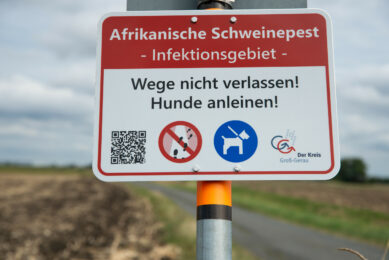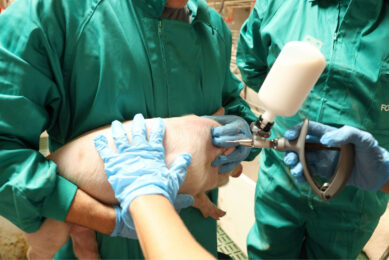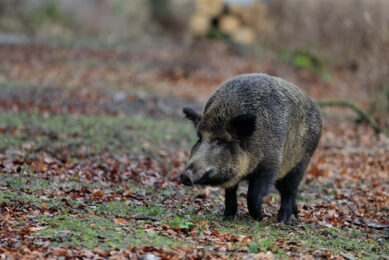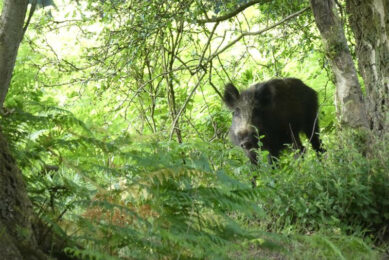ASF China: First signs of recovery; pork prices rise
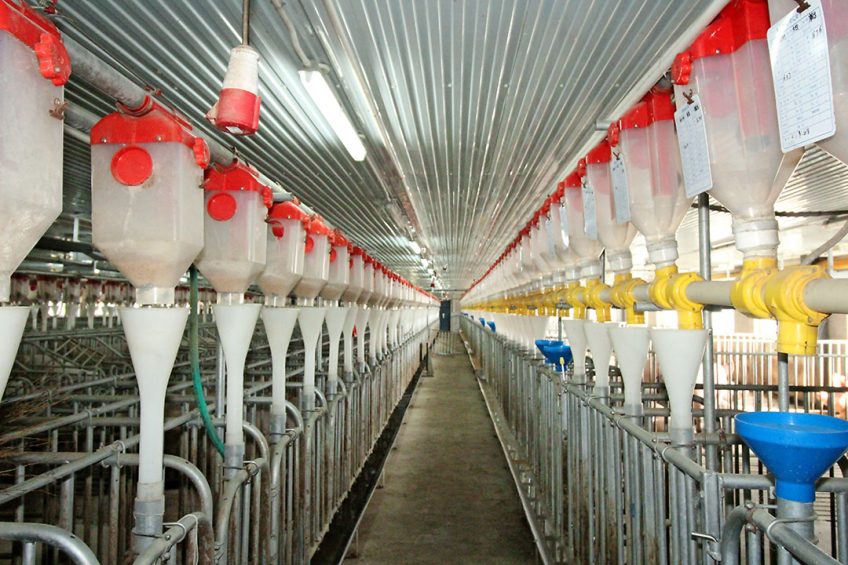
According to official figures, China’s inventory of breeding sows rose 0.6% in October. That is a first careful sign that pig production may soon start to recover after the African Swine Fever (ASF) outbreaks. Despite these figures, there is still reason to be very vigilant though.
The recovery was reported by news agency Reuters. It was the first small increase since April 2018.
The decline in the pig herd is also slowing, Yang Zhenhai, director of the animal husbandry and veterinary bureau under the Ministry of Agriculture and Rural Affairs (MARA), told the news agency. The pig herd fell by 0.6% in October, easing from a 3% fall from the month before, he said, and the smallest month-on-month contraction in a year.
Pig stock improvements envisaged
Yang stated that the ministry expects pig stocks to improve by the end of this year. He said Beijing aimed for pig production to reach 80% of normal levels by the end of 2020. The 13,000 large farms with production of more than 5,000 pigs per year saw a 4.7% increase in their sow stocks in October versus the prior month, while their pig numbers increased 0.5%, according to the article.
Sky-high fluctuation in pork prices
It is generally believed that between 40-60% of the Chinese swine herd disappeared due to ASF. Agricultural bank Rabobank recently estimated that the herd will be 55% smaller by the end of this year.
As a result, pork prices have been very high in China in recent months. Late October, the top price for 1kg of pork was RMB52 (€ 6.71), after which prices dropped again because consumers switched to other types of meat. On top, early November, the government announced to carry out nationwide inspections in slaughterhouses in order to destroy any ASF-infected meat, leading to panic sales.
“Not enough pork to fill the gap”
An initial growth in breeding stock numbers does not mean that China is out of the woods. Recently, British newspaper the Observer interviewed Rupert Claxton of international food consultancy Girafood. He painted a picture of the worldwide effects of the shortage in China, as it has an effect outside the country too. Europe has seen a jump of at least 35% of pork exports since the beginning of the year.
Claxton was quoted to say, “The problem is that total global pork exports in 2018 were 8 million tonnes, and China is short 24 million. There just isn’t enough pork in the world to fill the gap.”
US pork industry: Let us help!
In that context, the United States can’t wait to be granted a zero-tariff for pork exports to China. Currently, however, there is a tariff on US pork due to a trade war between the 2 countries. In a press release, the US National Pork Producers Council (NPPC) reminded once more that “securing zero-tariff access to China for US pork would be an economic boon for American agriculture and the country.”
Based on an analysis by Iowa State University (ISU) economist Prof Dermot Hayes, NPPC stated that unrestricted access to the Chinese chilled and frozen market would reduce the overall trade deficit with China by nearly 6% and generate 184,000 new US jobs in the next decade. The pork council launched a digital campaign to spotlight the importance of opening the Chinese market to US pork.
Underground ASF vaccines in China
There is more reason not to be only happy with the latest figures from China, as novel attempted vaccines against African Swine Fever (ASF) are leading to chaos on some pig farms in China. According to news agency Bloomberg, there is reason for concern due to their varying levels of efficacy.
The article quotes the Chinese magazineCaixin, stating that at least 3 illegally procured products have been used to immunise a substantial number of swine.

What can be done to get rid of ASF as soon as possible? Read the 18-step overview
The vaccines were administered after pig farmers signed confidentiality agreements with suppliers, the article stated. The effects of the vaccines were highly variable, according to the article. Some immunised pigs later developed a condition causing their skin tissue to die; some pregnant females aborted; others suffered no side effects, but died in big numbers.
Complicating the challenge of eradicating ASF
The article also quoted a professor from South China Agricultural University, saying last month that the use of illegal vaccines by some farms has complicated the challenge of eradicating ASF in China.
Different types of vaccines have been simultaneously used in some areas, making it difficult to discern their safety and efficacy, and distinguish between vaccinated and unvaccinated pigs, the professor said.
ASF developments in South Korea
Hopping over to other countries in Asia – the only reported outbreaks to the World Organization for Animal Health (OIE) are currently coming from South Korea. There, fences have been placed around the areas where wild boar have been found infected with ASF. From time to time though, infected carcasses are being found, but all in all, these appear to remain fairly close to the border with North Korea and within the fenced zones.
Other than these, not a lot of outbreaks have been officially reported to the OIE recently in Asia – which is not necessarily the same as there not being outbreaks. There have been signals that the virus has emerged on the island Sumatra in Indonesia. Thailand, so far, has not reported any outbreaks of ASF, although the virus was officially confirmed to be very close to the country’s borders, at more than one location.
Japan making culling possible in case of ASF
Last but not least, the Japanese agriculture ministry will seek to allow pig culls as a preventive measure against ASF, in case the viral disease would make it to Japan. This was recently reported by the Japan Times. Currently, preventive culling for ASF is not allowed by law.
The article stated that the ministry will submit a bill next year to revise the Act on Domestic Animal Infectious Diseases Control, ministry officials said. The law currently only allows preventive killings for dealing with Foot-and-Mouth Disease.




